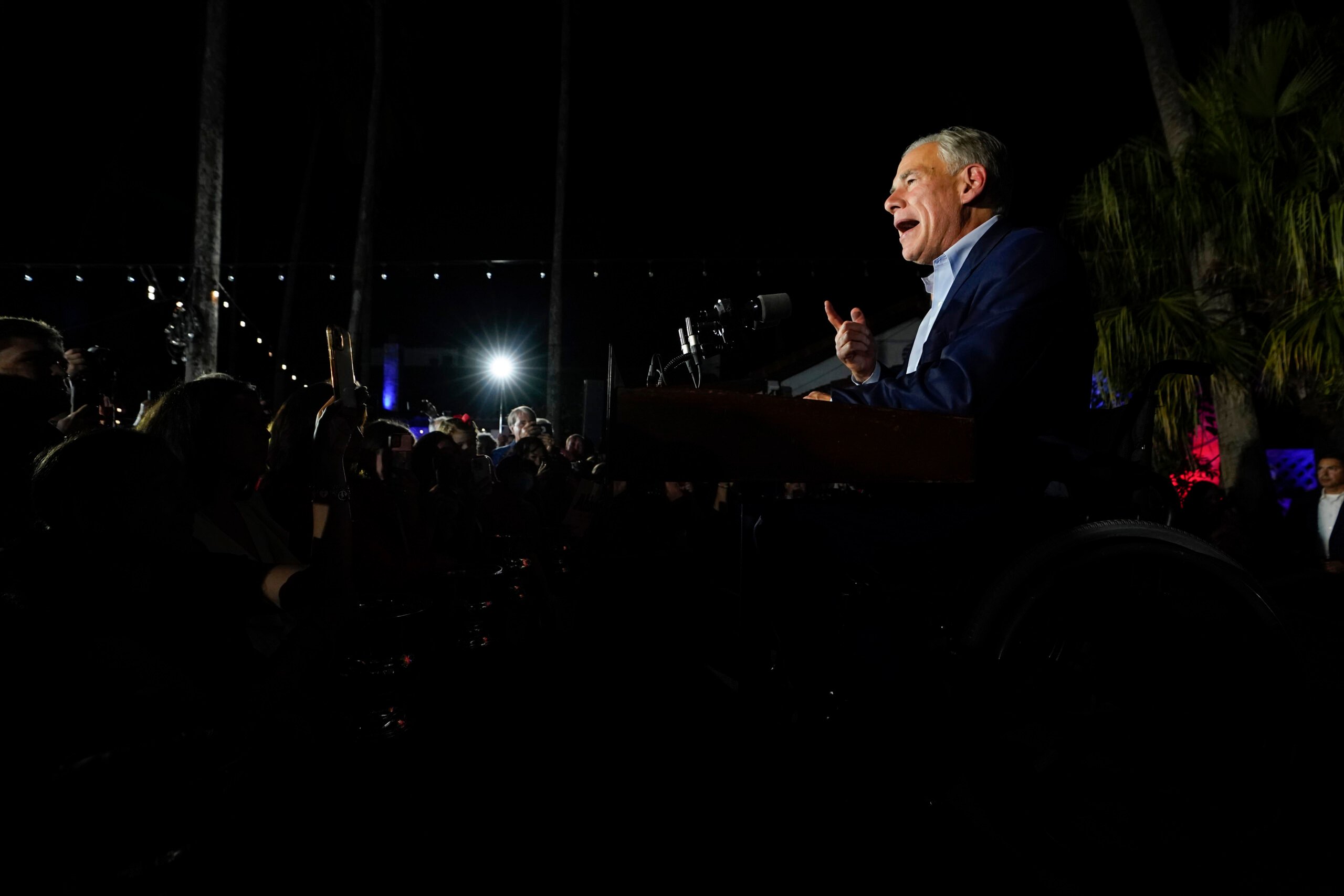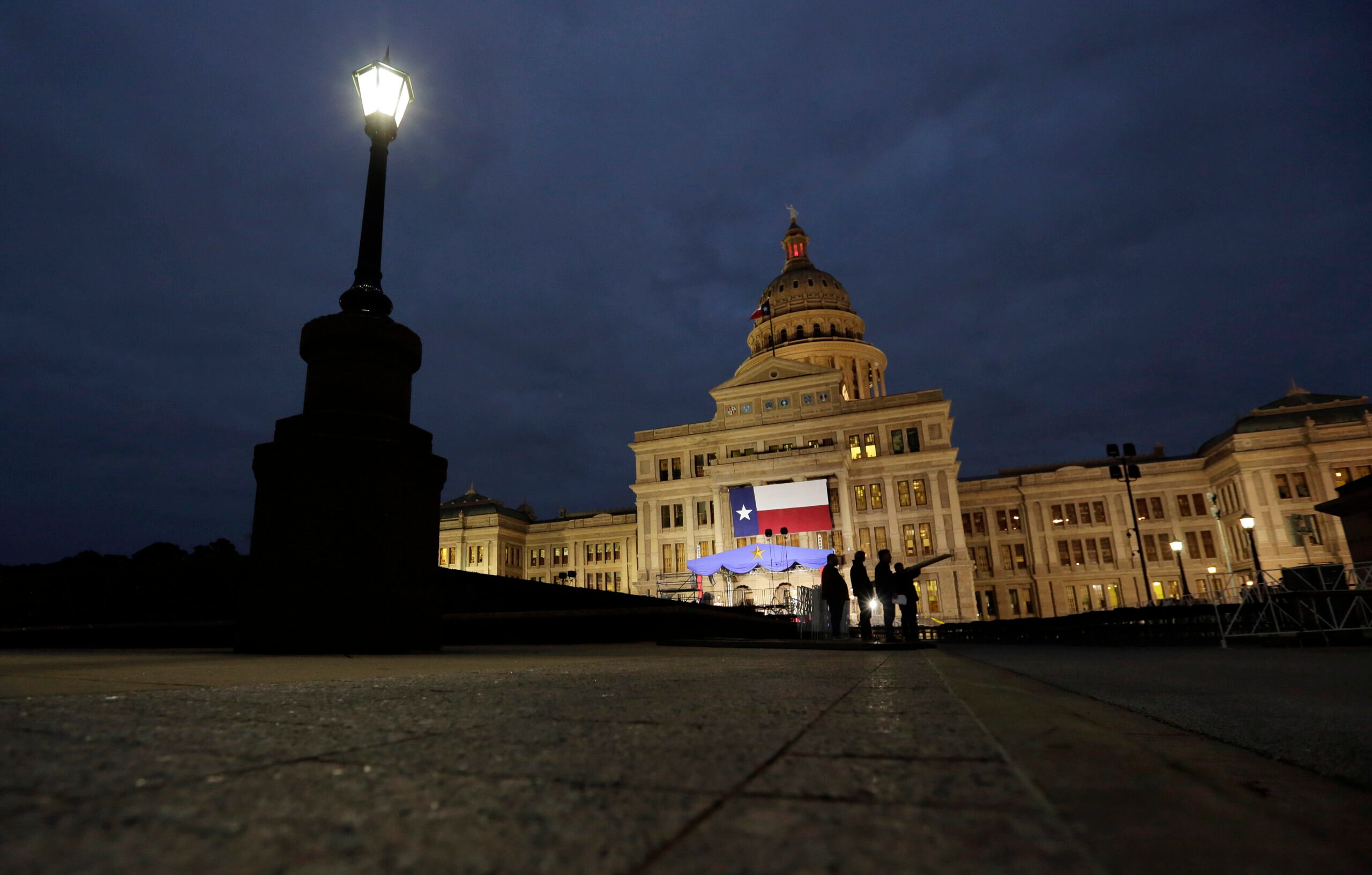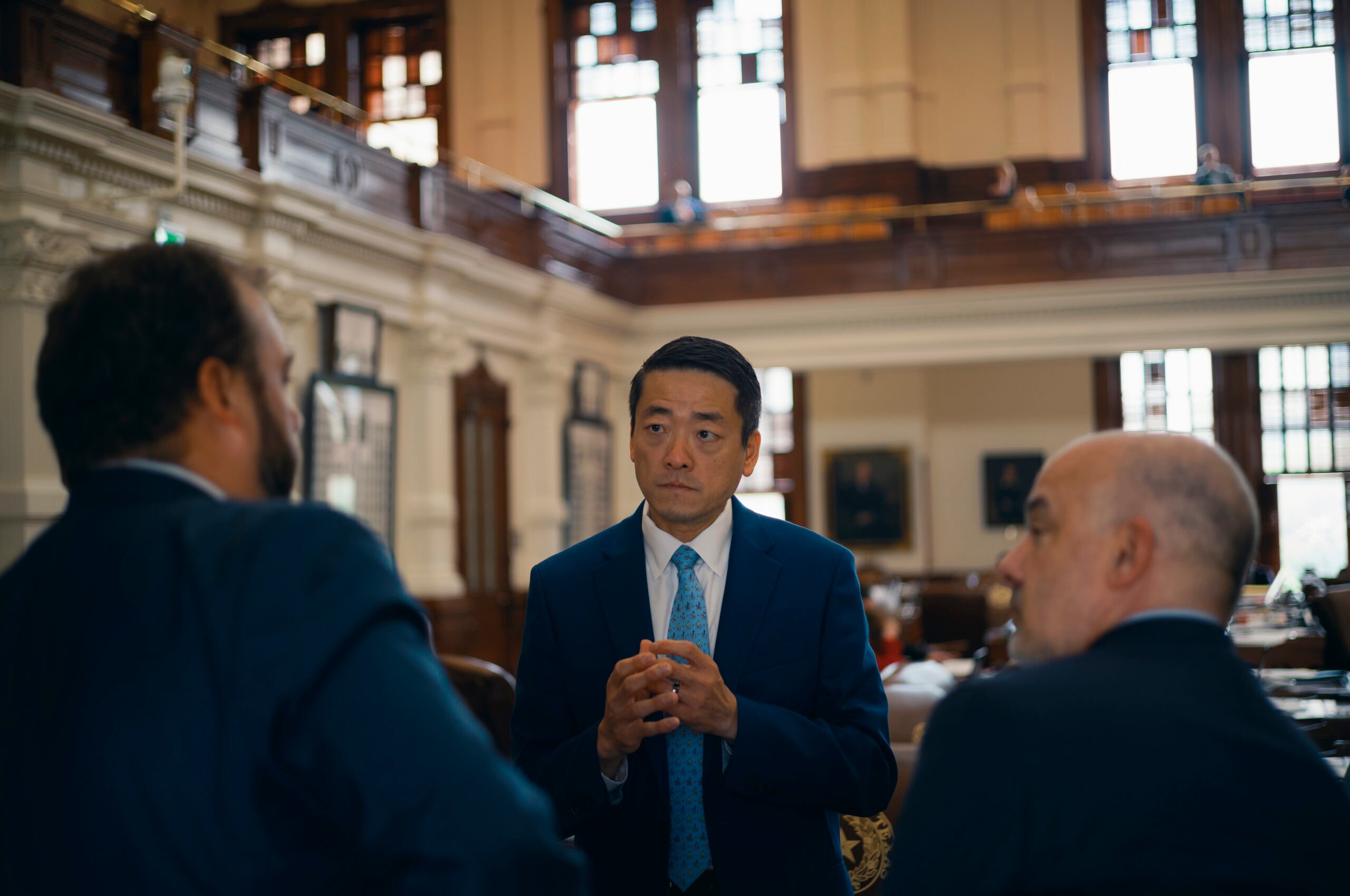
Party Discipline
Trumpeted one year, eschewed the next, free speech becomes a political football in Texas.

In response to last spring’s student protests against Israel’s war on Gaza that roiled college campuses across the country, including in Texas, the state’s Republican Legislature passed a law this spring placing certain conditions on “expressive activities” on campus. University governing boards were given more power to restrict when and how protests could occur, including a ban on amplified speech during class hours and demonstrations overnight.
This was a notable about-face from the purported free-speech protections that Texas Republicans had enshrined into law just a few years earlier, in 2019, to curtail perceived campus crackdowns on conservative expression as colleges canceled events with controversial speakers like “alt-right” white nationalist Richard Spencer.
So swings the political pendulum of First Amendment rights in the Lone Star State—and nationwide—as this foundational protection is treated as a prop to be bear-hugged in one moment and conveniently tossed aside when an opportunistic moment demands.
After the September assassination of right-wing influencer and activist Charlie Kirk during a college campus event in Utah, the Trump administration and the MAGA movement have responded with a crackdown on free speech and expression, ranging from policing the masses for uncouth responses to Kirk’s killing to getting a critical late-night TV show host temporarily taken off the air.
Perhaps nowhere has this been on more clear display than in Texas, and, more specifically, in the governor’s mansion. In the wake of Kirk’s death, Governor Greg Abbott publicly called for the expulsion of at least two students on state university campuses who were filmed mocking or otherwise making light of the assassination. In one case, he invoked “FAFO,” a very-online acronym he’s belatedly become fond of (short for “Fuck around and find out”), while posting the image of a Texas Tech student, a young Black woman, getting taken away in handcuffs after taunting Kirk supporters with an improvised song. “This is what happened to the person who was mocking Charlie Kirk’s assassination at Texas Tech,” Abbott wrote. “FAFO.”
The governor expressed no concern as to whether the 18-year-old had committed any crime or had simply been arrested for her speech.
Abbott and his agency bureaucrats also set up a hotline to report instances of public school teachers in Texas posting anything deemed inappropriate about Kirk’s killing, pledging to revoke the state teaching certificates of anyone deemed guilty of such speech crimes.
While many conservatives in Texas have willingly joined this crackdown, some have shown some semblance of a spine. In response to U.S. Attorney General Pam Bondi pledging in the immediate aftermath of Kirk’s killing to prosecute “hate speech,” Senator Ted Cruz kindly reminded his podcast audience that this would be unconstitutional. The nation’s founding document “absolutely protects hate speech,” he said. “It protects vile speech. It protects horrible speech. What does that mean? It means you cannot be prosecuted for speech, even if it is evil and bigoted and wrong.”
He also said that the Trump-appointed FCC chief had acted like a “mafioso” by threatening ABC execs over late-night show host Jimmy Kimmel’s (conveniently misinterpreted) commentary on Kirk’s death. Some other Texas Republicans publicly supported Cruz’s sentiment, including departing state Representative and ex-Speaker Dade Phelan, who chimed in: “Slippery slope indeed.”
Meanwhile, the state’s top Republican leaders rushed to assemble what appears to be purely a show committee. Two days after Kirk’s murder, the Texas House speaker and lieutenant governor announced a select committee on Civil Discourse & Freedom of Speech in Higher Education, an Orwellian title for a body to ostensibly oversee the implementation of two recently enacted laws policing speech, governance, and curriculum on campus.
This has all come alongside a rash of faculty firings in Texas sparked by the right’s efforts to purge universities of suspected leftist radicalism. A history professor at Texas State University was summarily tossed out of his tenured position for critical comments he made at a socialism conference about the violent American empire, which were surreptitiously recorded by a right-wing blogger. That professor, Thomas Alter, has since filed a lawsuit against the university for violating his First Amendment rights.
A lecturer at Texas A&M was also fired for apparently discussing a book that touched on gender identity in her children’s literature class. Texas A&M President Mark Welsh, a former four-star Air Force general, was caught on video initially resisting calls to fire the professor, though he ultimately did axe her in the face of cacophonous political pressure. But his initial hesitancy had his critics—including right-wing state Representative Brian Harrison and Lieutenant Governor Dan Patrick—saying he was insufficiently committed to carrying out the anti-left purges.
“His ambivalence on the issue and his dismissal of the student’s concerns by immediately taking the side of the professor is unacceptable,” Patrick posted on social media. Welsh then resigned.
A&M, the more conservative sibling campus to UT-Austin, has been under growing scrutiny recently from right-wing attack dogs like Harrison, who’ve pounced on any sign of supposed DEI initiatives, gender and race coursework, and the like. Welsh himself was named university president to replace M. Katherine Banks, who resigned in the summer of 2023 amid a firestorm sparked by the university hiring longtime UT journalism professor Kathleen McElroy to head up A&M’s journalism program. That news whipped right-wingers into what McElroy, who is Black, described as a “DEI hysteria,” and the university board of regents rescinded her offer. (McElroy, who remains a UT professor, has since become a board member of the Texas Observer’s parent nonprofit.)
While Welsh left without putting up much of a fight, his ouster has some similarities to perhaps the most infamous political breach of academic freedom in Texas history. In 1944, UT President Homer Rainey was summarily fired by the regents for his full-throated opposition to their firing of four economics professors with pro-labor New Deal politics and an English professor who’d assigned a controversial novel (which they also then banned).
His ouster became a national story and prompted broad resistance on campus—including thousands of students who went on strike. The governor at the time, Coke Stevenson, did replace many of the sitting UT regents, but Rainey was never rehired.
Nowadays, the independence of university leadership—to say nothing of faculty—has been greatly deteriorated by political dictates and targeted pressure campaigns.
Abbott’s appointed regents are all big campaign donors who sit neatly in his back pocket. And the chancellorships of the big three university systems are now all about to be controlled by ex-Republican politicians: at UT, former state Representative John Zerwas; at A&M, recently departed Comptroller Glenn Hegar; and likely soon at Texas Tech, hardline conservative state Senator Brandon Creighton.
All this portends a straitjacketed Texas campus culture, one fit for a Soviet Union in which Gorbachev had been succeeded by Pat Buchanan. In recent weeks, cancel crusades have been launched against individuals who merely quoted some of the late Kirk’s more repugnant views on civil rights or, sharpening the point, gun violence. To risk quoting Kirk himself here—espousing the rare view of his that was fit for a decent society: “There’s ugly speech. There’s gross speech. There’s evil speech,” he once opined. “And ALL of it is protected by the First Amendment.”



